Sam Davis
Sam Davis (right) is often referred to as the "Boy Hero of the Confederacy," and has long been held by southerners, in similar standing to the great Revolutionary War spy Nathan Hale.
In 1861, at the age of 18, Sam Davis joined the 1st Tennessee Volunteer Infantry, and went to war for the Confederacy...
He and his unit took part in Stonewall Jackson's Shenandoah Valley Campaign and the Battle of Shiloh. In October, he was wounded at the Battle of Perryville and had to take time to recover.
After recovering, Davis joined Coleman's Scouts, a band of Army scouts who spied and delivered information and messages for the Confederate Army of Tennessee. This unit was under the command of Captain Henry B. Shaw (a.k.a. E. C. Coleman).
In 1863, Union troops held Nashville, Tennessee, and the Confederate Army of Tennessee was desperate for information concerning the plans of the Union forces in the state. Captain "Coleman" and his scouts had a very well developed intelligence network in the area and were a great source of information for their Generals.
Sam Davis's position in Coleman's Scouts was that of a courier, and it was while performing those duties that he was captured during November 1863...
In Smyrna, Tennessee there is an interesting Museum at the boyhood home of Sam Davis. There you can learn more about his story, and about life during the Civil War.
Capture, Questioning, and Trial
By this time, "Coleman" and his scouts had become somewhat notorious, and Union authorities were very interested in putting a stop to their activities.
In late 1863, Captain "Coleman" and a number of his men were spying out the Union forces in the Nashville area. When they had gathered sufficient information, several men were dispatched to carry the reports to Confederate General Braxton Bragg.
One of these men was Sam Davis, but he never made it to General Bragg. He and several other couriers were captured by the 7th Kansas Cavalry, known in the area as the "Kansas Jayhawkers." These men were placed under arrest for being southern sympathizers.
When Davis was captured, the Union men found, hidden in his saddle, some very detailed maps of the fortifications and defenses of Nashville, and an in depth report concerning the Union Army in Tennessee. More troubling for Davis, however, was the sealed letter they found in his boot. It was a letter from the infamous Captain "Coleman" to General Bragg's command.
These items immediately identified Davis as a spy, and he was brought before the local Union commander, General Grenville M. Dodge. Thirty years later, General Dodge recalled the interviews that took place over the next couple days thus,
"When brought to my office I met him pleasantly. I knew what had been found upon him, and I desired to locate "Coleman" and ascertain, if possible, who was furnishing the information, which I saw was accurate and valuable, to Gen. Bragg. Davis met me modestly... ...I tried to impress upon him the danger he was in and that I knew he was only a messenger, and held out to him the hope of lenient treatment if he would answer truthfully, as far as he could, my questions. He listened attentively and respectfully to me, but, as I recollect, made no definite answer, and I had him returned to the prison."
At this point, a Union spy was placed in prison with the captured Confederates to try to make friends with them and gain some information,
"...they all kept their own counsel, and we obtained no information of value from them...
...I had Davis brought before me again after my provost marshal had reported his inability to obtain anything of value from him. I then informed him that he would be tried as a spy, that the evidence against him would surely convict him, and made a direct appeal to him to give me the information that I knew he had. He very quietly but firmly refused to do it. I therefore let him be tried and suffer the consequence...
...I am under the impression that some of them... ...endeavored to induce him to save himself, but they failed..."
After Sam Davis repeatedly refused to betray anyone connected to the information he was carrying, General Dodge was forced to appoint a Military Commission to try him. Not surprisingly, this was the Commission's verdict:
"The Commission does therefore sentence him, the said Samuel Davis, of Coleman's Scouts, in the service of the so-called Confederate States, to be hanged by the neck until he is dead, at such time and place as the commanding general shall direct, two-thirds of the Commission concurring in the sentence."
Though it was to be expected for an enemy spy, Davis had made an impression on General Dodge who was sorry to carry out the verdict.
"...I regretted to see the sentence executed; but it was one of the fates of war, which is cruelty itself, and there is no refining it."
Execution of a Spy
The night before he was to be executed, Sam Davis joined the other prisoners in a short devotional with Union Chaplain, Rev. James Young, and the Chaplain later remembered Davis's participation, "...Mr. Davis joined with us in singing the well-known hymn, 'On Jordan's Stormy Banks I Stand,' in animated voice."
That same night Davis penned a letter to be given to his parents when they came for his body:
"Dear Mother:
Oh, how painful it is to write you! I have got to die to-morrow morning--to be hanged by the Federals. Mother, do not grieve for me. I must bid you good-by forevermore. Mother, I do not fear to die. Give my love to all.
Your son, Samuel Davis
Mother, tell the children all to be good. I wish I could see you all once more, but I never will any more.
Mother and Father, do not forget me. Think of me when I am dead, but do not grieve for me. It will not do any good. Father, you can send after my remains if you want to do so. They will be at Pulaski, Tenn. I will leave some things, too, with the hotel keeper for you. Pulaski is in Giles county, Tenn., south of Columbia.
S.D."
November 27, 1863, dawned "fair and warm," and Davis was shackled and brought out of prison for his final ride. He was helped into the back of a wagon and took a seat on his coffin for the trip to the gallows...
It was his 21st birthday.
During the ride to the gallows, the fetters on his feet pinched his feet so severely, that he had Chaplain Young cut his boots to relieve the pressure. At "five minutes past ten o'clock," the wagon rolled up to the scaffold, Sam Davis's final moments were at hand...
"The prisoner then stepped from the wagon and seated himself upon a bench at the foot of the scaffold. He displayed great firmness, glancing casually at his coffin as it was taken from the wagon. Turning to Capt. Armstrong, he inquired how long he had to live, and was told that he had just fifteen minutes. He then remarked: 'The boys will have to fight the rest of the battles without me.'
Capt. Armstrong said: 'I am sorry to be compelled to perform this painful duty.'
The prisoner replied with a smile: 'It does not hurt me, Captain. I am innocent and I am prepared to die; so do not think hard of it.' "
Davis asked for news of the war and was told that the Confederates and General Bragg had just been defeated at Missionary Ridge. He is said to have expressed regret upon hearing that news. Davis then went up the steps to the gallows, where he was asked one more time to denounce his sources and give up Coleman so that he could live. According to tradition, he responded by saying,"Do you suppose that I would betray a friend? No, sir; I would die a thousand times first! "
Davis then asked Chaplain Young to pray with him, and took his place on the trapdoor...
Only later did General Dodge learn that Sam Davis's calm acceptance of his fate was even more impressive than it would first seem. One of the other men captured the same day as Davis and imprisoned in the same jail was none other than the much sought after Captain "Coleman."
The Captain was disguised as an unkempt and grizzled old man, and had given his real name, Shaw, when he was captured. Davis had known all along that if he had only alerted his captors to that fact, Shaw would have hung in his place; but Sam Davis was unmoved. When General Dodge learned of Captain "Coleman's" being captured at the same time as Davis, he had this to say,
"This is where Davis showed himself a true soldier: he had been intrusted with an important commission by an important officer, who was imprisoned with him, and died rather than betray him. He knew to a certainty that if he informed me of the facts Shaw would be executed, as he was a far more important person to us than was Davis."
...and that is why Sam Davis is still remembered as the, "Boy Hero of the Confederacy."
To see where he grew up, you can visit the Sam Davis Home in Smyrna, Tennessee. This is also where he was buried after his parents retrieved his body.
American Civil War Story - Home
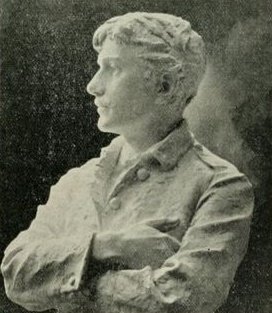

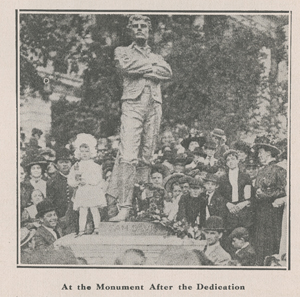
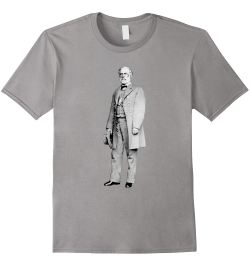




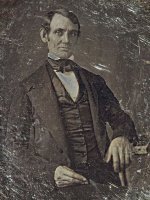
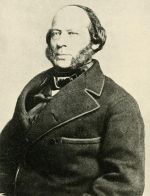
New! Comments
Have your say about what you just read! Leave me a comment in the box below.